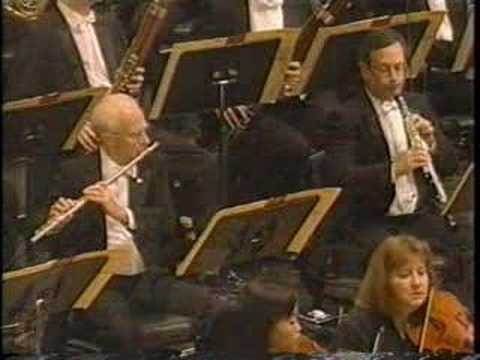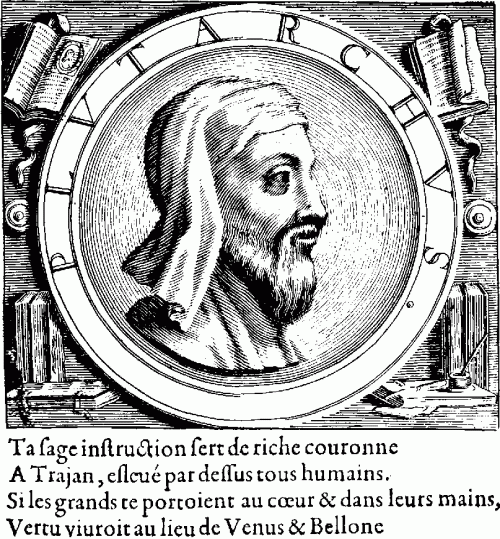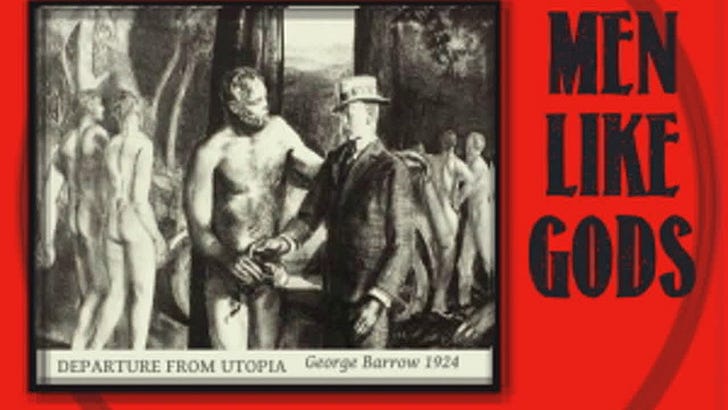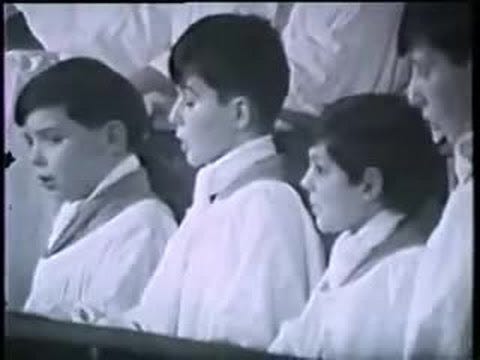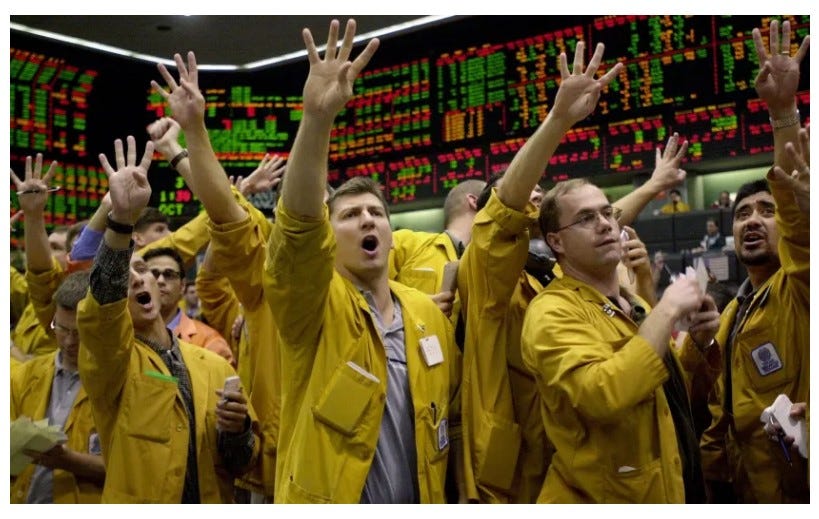Nimrodists, Money, and Myths: Lies and Oil Wars.
AN AI Interpretation in the Voice of GK CHesterton.
Here’s a complete draft of the ten-part allegorical novel, "Nimrodists, Money, and Myths: Lies and Oil Wars," formatted for easy pasting into Substack. Each chapter is structured to reflect the themes and style of G.K. Chesterton.
How to create an ebook using Wordgenie from Designrr
Click play and enjoy Elgars Enigma Variations as you read this post
Nimrodists, Money, and Myths: Lies and Oil Wars
Part 1: The Nimrodists
Chapter 1: The Tower of Ambition
In a land where ambition towered like a great edifice, there lived a leader named Nimrod. His vision was grand: to unite the world under one banner, to build a tower that reached the heavens, a monument to human will and prowess. The Nimrodists, his followers, were enamored by the promise of glory, seduced by the notion that wealth and ambition could conquer all.
As they toiled, brick by brick, the tower grew taller, piercing the clouds. Yet, beneath the surface of this grand ambition lay a festering discontent. Different factions emerged among the Nimrodists, each with its own vision of power. The air was thick with rivalry, and whispers of dissent echoed through the construction site.
Nimrod, standing at the base of his creation, felt the weight of his ambition. The tower, once a symbol of unity, began to reflect the fractures within his ranks. As the sun set on the horizon, casting a golden glow on the tower, it became clear: ambition unchecked breeds division.
Chapter 2: The Fall of Babel
As the tower neared completion, the city erupted in chaos. The Nimrodists, once united in purpose, found themselves speaking in tongues, their ambitions diverging into a cacophony of voices. The tower, meant to bridge the heavens and earth, became a monument to their hubris.
One fateful day, a great wind swept through the city. The foundations trembled, and with a deafening roar, the tower collapsed. Bricks fell like rain, and the ground shook beneath their feet. The Nimrodists scattered, their dreams shattered, each speaking a different language, a reflection of their divided hearts.
In the aftermath, Nimrod stood amidst the ruins, a solitary figure. He realized that true leadership is not about building towers but about fostering unity. With a heavy heart, he vowed to seek a new path, one that valued community and understanding over ambition and greed.
Chapter 3: The Return of the Hunter
The landscape was desolate, a graveyard of dreams. Nimrod, now humbled, wandered among the remnants of his ambition. He reflected on the folly of his pursuit, the price of glory that had cost him his followers and his purpose.
As he journeyed, he encountered survivors of the collapse, people who had once been his allies. They spoke of rebuilding, of learning from the past. Together, they forged a new community, one where each voice mattered, and ambition was tempered by compassion.
Nimrod, once a mighty hunter, became a gatherer of wisdom. He learned that strength lies not in the height of towers but in the depth of relationships. With renewed purpose, he led his people towards a future grounded in unity and understanding.
Part 2: Money: The Full Enchilada
Chapter 4: The Golden Illusion
In a bustling marketplace, traders and merchants hawked their wares, each promising wealth and prosperity. The allure of gold shimmered like a mirage in the desert, drawing people into a web of greed. They believed that money could solve all their problems, that it was the key to happiness.
As the days passed, the marketplace thrived, yet beneath the surface, a dark shadow loomed. The disparity between the rich and the poor grew, and the cries of the needy were drowned out by the clinking of coins. The wealthy indulged in lavish feasts, while the poor struggled to survive.
One day, a wise figure stepped forward, challenging the merchants and their patrons. “What is the price of your prosperity?” he asked. “Is it worth the suffering of those who toil for your gain?” His words struck a chord, awakening a sense of conscience among the revelers.
Chapter 5: The Price of Prosperity
At a grand banquet, the wealthy celebrated their riches, oblivious to the plight of the poor. Laughter echoed through the halls, but the joy was hollow. As the feast unfolded, the wise figure returned, his presence a stark reminder of the cost of their indulgence.
“Look around you,” he urged. “For every morsel you consume, there is a soul that goes hungry. For every glass raised in toast, there is a tear shed in silence.” The revelers fell silent, the weight of his words sinking in.
In that moment, the banquet hall transformed. The guests began to see beyond their plates and goblets, recognizing the interconnectedness of their fates. They resolved to change, to create a society where wealth was shared, not hoarded.
Chapter 6: The Currency of Humanity
A gathering of diverse individuals convened to discuss the nature of value. They shared stories of struggle and triumph, realizing that true wealth lay not in gold but in relationships and community. The air was charged with hope as they envisioned a new system of exchange.
“Let us establish a currency of humanity,” one participant proposed. “A system where kindness and cooperation are valued above all.” The idea resonated, sparking a movement that spread through the city.
Together, they created a network of mutual aid, where people exchanged goods and services based on need rather than profit. The marketplace transformed, becoming a vibrant tapestry of generosity and support, where everyone had a place.
Part 3: Myths, Lies, and Oil Wars
Chapter 7: The Myth of Scarcity
In a war room filled with maps and strategies, leaders plotted their next moves over oil-rich territories. They spun tales of scarcity, manipulating the narrative to justify their greed. The myth of limited resources fueled a cycle of conflict, leading to widespread suffering.
As wars broke out, the leaders reveled in their power, blind to the destruction they wrought. The cries of the innocent echoed in the background, drowned out by the clamor for control. The truth began to unravel as the consequences of their actions became undeniable.
Chapter 8: The Lies of Power
In a courtroom, the leaders faced judgment for their actions. Witnesses stepped forward, exposing the lies that had fueled the wars. The weight of their deceit hung heavy in the air as the truth emerged, revealing the devastation left in the wake of their ambition.
“Your power was built on the suffering of others,” one witness declared. “You traded lives for profit, and now the scales of justice must balance.” The leaders squirmed in their seats, the facade of invincibility crumbling.
As the verdict was delivered, a sense of accountability washed over the room. The leaders were stripped of their power, but the scars of their actions remained, a reminder of the consequences of unchecked ambition.
Chapter 9: The Reckoning of the Earth
In the aftermath of war, the landscape lay in ruins. Survivors gathered, united by their shared experiences. They began to rebuild, learning from the past and vowing to create a society rooted in peace and sustainability.
As they worked, they shared stories of resilience and hope. They understood that true strength lay in their ability to come together, to support one another in the face of adversity. The community flourished, a testament to the power of unity.
With each brick laid, they built not just homes, but a new way of life—one that honored the earth and its resources. The scars of war faded, replaced by a vision of a brighter future.
Epilogue: The Servile State
In a quiet garden, a sense of renewal filled the air. The community thrived, a testament to the power of collaboration and understanding. But as the sun set, a reminder lingered in the hearts of the people.
“Throughout the ages,” a voice echoed, “humanity has danced to the tune of tyrants and traders, forgetting that true freedom lies not in the chains of gold, but in the bonds of brotherhood. For every age that has bowed to the idol of wealth has found itself a servant to its own making.”
And so, the tale of the Nimrodists, the allure of money, and the myths that fueled wars lived on, a reminder that the path to true prosperity lies not in ambition, but in the strength of community and the value of human connection.
This draft is ready for pasting into Substack, formatted for clarity and ease of reading. Each chapter reflects the allegorical style of G.K. Chesterton, addressing themes of ambition, greed, and the importance of community.
Executive Order 11110 , The JFK Perp's
Follow the Money! Write a GK Chesterton style essay on the theme that The Same perpetrators who assasinated JFK for executive order https://en.wikipedia.org/wiki/Executive_Order_11110 are behind threats to Liz Truss and Nigel Farage also Dennis Kucinich who wrote an open letter to Donald trump in 2017. Trump has hinted going after Jerome Powell if he di…
The Great Inanition: A Paradox of Plenty in the Age of Going Direct In the manner of G.K. Chesterton
Google Search Pierre Omidyar , Elon Musk and Peter thiel photographed together
My manifesto against the theory and_Practice of Oligarchical Collectivism
https://www.linkedin.com/pulse/my-manifesto-against-theory-andpractice-oligarchical-roger-lewis-d47vf
May 23, 2025
Can AI be Aligned with Human Values?
Generative AI engineers report that AI has a mind of its own and tries to deceive humans.
VN Alexander
Roger
May 26, 2025 2:51 AM
One thing I value about Off Guardian is the back catalogue.
https://off-guardian.org/2016/11/20/soros-60minute-video/
Shame that the video has disappeared from the article I referenced it in a 2016 blog.
Timonism, The Calvinist strain in Neo Liberal Misanthropy. Zionism, The Money Power Usury and The Petro Dollar. Fall of the Roman Empire 2.0.#OccupyTheEuropeanSpring Some Books and Themes Informing a Cynical and not Timonist view of Neo-Liberal Fascism.
I enjoyed this article and commented on the writers substack and not here.
On AI , on digital communication in general the lack of persistence in the “well of information” makes book burning in the modern sense very easy. The disappearing video in that article from 2016 is a small example for instance.
Ted Nelsons Xanadu in his initial vision for an open internet would have made persistence and hence sourcing and referencing information a lot more useful and fair.
AI is ML and the digital realm is BS





